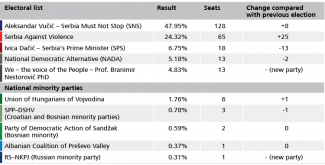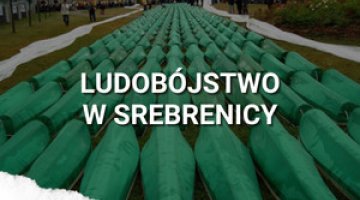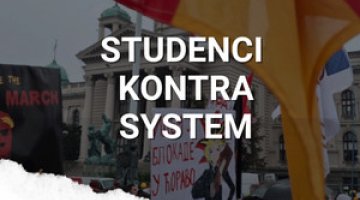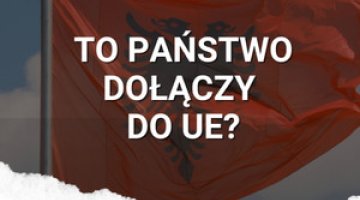Elections in Serbia: victory for Vučić and a consolidation of the system
On 17 December 2023, Serbia held its early parliamentary and local elections in the Autonomous Province of Vojvodina and in 66 municipalities. As regards the parliamentary elections, according to preliminary results the ruling Serbian Progressive Party (SNS; it ran as ‘Aleksandar Vučić – Serbia Must Not Stop’) came first by a wide margin. It garnered 47.95% of the vote, which will enable it to form a government on its own. The main opposition force, the Serbia Against Violence coalition, won 24.32% of the vote, and the list of the Socialist Party of Serbia (SPS), the junior partner in the ruling coalition, was supported by 6.75% of voters. Other parties whose candidates won seats in parliament include the conservative pro-monarchy National Democratic Alternative (NADA), which garnered 5.18% of the vote, and a list led by Branimir Nestorović, the popular leader of anti-vaccine conspiracy groups, supported by 4.83% of the electorate. Parties representing national minorities will also likely be represented in parliament. According to the preliminary results, the coalition led by President Vučić also came first in the local elections in all cities and municipalities including Belgrade, where it gained 39.35% of voter support, while the result obtained by the opposition Serbia Against Violence was 34,26%. The parliamentary election turnout was 58.6%.
Numerous irregularities were recorded on voting day. The OSCE observer mission’s preliminary report suggests that the elections took place in unjust condition due to the ruling party’s systemic advantages, which i.e. was able to use state resources during the campaign. Other reasons include the pressure put on public sector employees, and the fact that the election’s media coverage favoured the government. Numerous formal irregularities regarding the voting procedure (such as family voting and inconsistencies in vote counting) have also been revealed. According to CRTA, a local election observation organisation, the irregularities spotted were sufficiently serious to prompt the view that they may have affected the outcome, particularly in Belgrade. These included ruling party supporters being bussed in from neighbouring countries to specific polling stations and instances of electoral committee members failing to check voters’ identity. Instances of vote buying were also recorded. The Serbia Against Violence movement has contested the election results in Belgrade and demanded a rerun (two politicians have gone on hunger strike). On 18 December, a protest against electoral fraud, mainly made up of young people, took place in front of the headquarters of the Republic Election Commission.
Commentary
- The elections have consolidated President Aleksandar Vučić’s hegemonic position and corroborated the effectiveness of his party structures in keeping control of society. In this situation, fully democratic elections cannot be held. As a consequence, despite mounting social discontent, Vučić’s party even managed to improve its electoral result (2.5 percentage points up on the April 2022 ballot). The snap election was intended to restore the government’s legitimacy following a wave of mass protests held in summer. It was also important in the context of numerous symptoms of discontent triggered by an economic slowdown (see ‘Elections in Serbia: a test for Aleksandar Vučić’s system of power’). Alongside this, however, the voting process has demonstrated that the party needed to apply electoral manipulation techniques and put pressure on the voters on a large scale in order to obtain this result.
- The SNS has maintained its position mainly at the expense of its coalition partners and extreme-right groups (including several parties which demand that Serbia should retake Kosovo) which obtained significantly fewer votes than in previous elections. The SPS, led by Serbia’s foreign minister Ivica Dačić, recorded a particularly sharp decline in voter support, and as a consequence Dačić has announced his intention to step down. The fact that Nestorović’s anti-establishment party will be represented in parliament came as a considerable surprise. For the time being, Nestorović does not intend to cooperate either with the government or with the democratic opposition. Despite the low electoral threshold (3%), the line-up of the new parliament will consist of significantly fewer parties than in the previous term, which is proof of the consolidation of the Serbian political scene.
- The united opposition has obtained its best result since the SNS came to power in 2012. It will be represented in parliament by a strong group of MPs, which in the present situation should be viewed as a relative success. However, its defeat in the local elections in Belgrade came as a major disappointment; according to polls, it stood a real chance of taking power there. Its representatives’ reaction to the course and outcome of the recent elections suggests that it has no coherent strategy for its future activities, in particular targeting younger voters. At present, it is difficult to assess whether the opposition can mobilise the public to attend further protests, especially in harsh weather and during the Christmas season. The outcome of the vote will further erode Serbian society’s confidence in democratic institutions, and will most likely translate into voters becoming discouraged and losing hope that the government can be changed by means of elections.
- The election outcome equates to a continuation of Vučić’s policy, which involves viewing Serbia’s cooperation with the West as transactional, while simultaneously declaring support for integration with the EU and maintaining close relations (based on personal contacts) with numerous illiberal or authoritarian leaders of states such as Hungary, Turkey, Russia and China. As regards domestic policy, a tougher crackdown on the opposition and ramped-up nationalist rhetoric should be expected. This will serve the government to keep its electorate mobilised.
APPENDIX. Results of Serbia’s parliamentary election held on 17 December 2023






